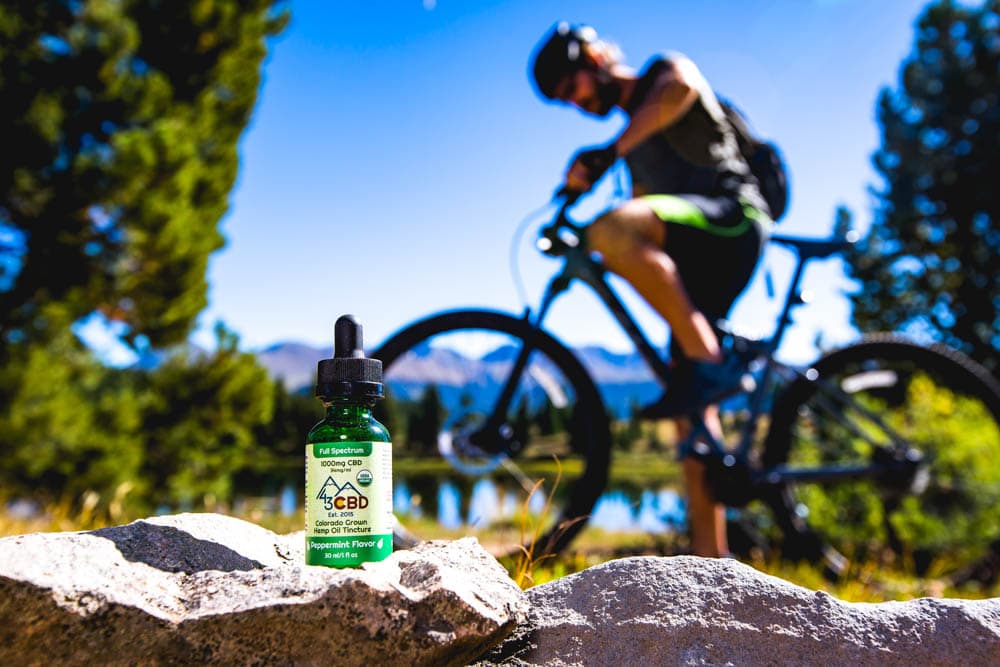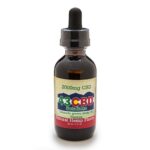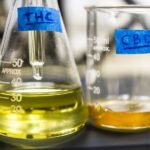
Cannabidiol (CBD) is one of over a hundred different types of cannabinoids found in the hemp plant and is the compound that many people seek in the cannabis plant.
But how does it make you feel?
Does CBD oil give you a high?
Does it have any mind-altering effects?
No. CBD does not cause a “high” or compromise cognitive function, in contrast to THC, the psychoactive ingredient in the cannabis plant. Instead, a variety of benefits are produced, some of which can help with pain reduction, relaxation, and general wellbeing.
Its adaptability is one of the factors contributing to CBD’s rising appeal. It can be eaten in several ways, including as tinctures, capsules, edibles, or topicals, and each may have a different impact on the body. For instance, ingesting CBD may have a more durable effect than topically using it. Moreover, individual characteristics including age, weight, metabolism, and the dose consumed can affect how CBD affects a person.
The science underlying how CBD interacts with the body and the many impacts it might have will be discussed here so we can explore why and how it reacts with the human body. Whether you want to control pain, lessen anxiety, or get better sleep, CBD oil might be a healthy alternative to think about. So let’s get started and discover more about how CBD might affect your mood – beginning with the endocannabinoid system.
CBD and the Endocannabinoid System
Understanding how CBD oil interacts with the body’s endocannabinoid system (ECS) can help you understand how it affects your mood and how it could potentially be helpful for a number of health ailments.
The ECS is a sophisticated network of neurotransmitters, enzymes, and receptors that controls a wide range of physiological processes, including mood, hunger, pain perception, and immunological response.
The central nervous system and the brain have the majority of the CB1 receptors, which make up the ECS, while the immune system and peripheral tissues contain the majority of the CB2 receptors. These receptors aid in the regulation of several physiological processes when endocannabinoids activate them.
Through altering the activity of these receptors, as well as other non-cannabinoid receptors and signaling pathways, CBD interacts with the ECS. For instance, it has been demonstrated that CBD prevents endocannabinoids from being broken down, increasing their availability in the body and enhancing their effects.
There is still much to learn about the endocannabinoid system’s functioning and interactions with other bodily systems, according to continuing research. Recent research has, however, illuminated some of its possible medicinal advantages.
The ECS may be a viable target for the treatment of anxiety and depression, according to a study that was published in the Journal of Neuroendocrinology. The ECS is important in controlling stress responses and mood. A different study that was published in the Journal of Pharmacology and Experimental Therapeutics raises the possibility that the ECS is involved in the regulation of pain perception and that treating chronic pain by targeting CB2 receptors may be a promising strategy.
CBD oil may assist the body to maintain equilibrium and homeostasis by interacting with the ECS, which may ease a range of health issues. To completely comprehend the impact of CBD on the ECS and its potential therapeutic advantages, more research is nonetheless required.
Think of it this way.
ECS helps keep things in your body within a good balance. If your body starts to fall out of balance, ECS is there to put it back into place. It also sends signals to different parts of the body to tell them what to do. These “signals” would be the endocannabinoids.
For example, the signals can let our brain know when we’re happy or in pain. CBD is a special natural compound that can talk to this messaging system and help it work in different ways as it reacts with the ECS.
What Does Taking CBD Feel Like?
If you’re thinking about taking CBD oil for the first time, you might be curious about how it will make you feel. Despite the fact that CBD is not psychoactive and won’t get you “high” like THC, it can still have a number of impacts that may be good for your health.
The effects of CBD can fluctuate depending on a number of variables, including the dosage used, how it was consumed, and individual variations in metabolism and sensitivity. Nonetheless, the following are some typical effects of CBD:
CBD is frequently used by people to aid with relaxation and stress reduction. The anxiolytic properties of CBD may help reduce anxiety and encourage relaxation.
Pain relief: By interacting with the body’s ECS and lowering inflammation, CBD may help decrease chronic pain.
Better sleep: CBD may aid with better sleep and less insomnia, perhaps by lowering anxiety and encouraging relaxation.
Enhanced mood: CBD may have antidepressant benefits and may support a more positive outlook on life.
Decreased inflammation: According to some research, CBD has anti-inflammatory properties that may be helpful for treating illnesses like inflammatory bowel disease, acne, and arthritis.
It’s crucial to remember that the effects of CBD may vary from person to person and may take some time to become apparent. Before using CBD oil, it’s vital to speak with a healthcare provider because CBD may interact with other medications.
Ultimately, CBD oil’s benefits can be minor but nonetheless beneficial to your health and wellbeing. Whether you want to control pain, lessen tension, or get better sleep, CBD oil might be a natural solution to think about.
What Does CBD Feel Like at High Doses?
The quick answer to the question of whether CBD can be felt when taken in high doses is yes. Using a high amount of CBD oil can nevertheless have more of an impact than taking a modest quantity, even though CBD is non-intoxicating and won’t get you high like THC.
Hence, if you’re consuming a lot of CBD oil, you can potentially feel more at ease, get better pain relief, or have an easier time falling asleep at night. It’s crucial to keep in mind though that consuming too much CBD oil can also cause undesirable side effects including feeling tired, having a dry mouth, or having an upset stomach.
Because of this, it’s a good idea to begin using CBD oil at a low dose and gradually increase it until you find the dosage that works best for you. In this manner, you can take advantage of CBD oil’s benifits without worrying about any negative side effects.
A healthcare practitioner should always be consulted before using CBD oil, especially if you’re taking other prescriptions or have a pre-existing medical condition. Also, keep in mind that CBD may interact with other medications – including medical marijuana.
Hence, if you’re thinking about using CBD oil, start with a low dose and gradually increase it until you find the dose that is most effective for you.
Does Full Spectrum CBD Feel Different Than CBD Isolate?
You may have heard the terms “full spectrum” and “CBD isolate” used in relation to CBD. These terms describe the kind of CBD oil you’re ingesting, and they can have an impact on how you feel after ingesting it.
Full spectrum CBD oil also contains a variety of terpenes, flavonoids, and other cannabinoids that are present in hemp plants. The “entourage effect,” which is created when several substances combine, is thought to increase CBD’s overall medicinal advantages.
Contrarily, CBD isolate is a pure form of CBD that has been separated from all other substances present in the hemp plant. This indicates that no further terpenes, flavonoids, or cannabinoids are present.
43CBD does not make any products with isolated CBD, we believe in the benefits of CBD working in conjunction with the other cannabinoids found in the hemp plant.
Do the effects of broad spectrum CBD oil and CBD isolate differ?
Yes, just like full spectrum, broad spectrum CBD products have different effects from isolate. Broad spectrum CBD oil, is simply Full spectrum oil with no traces of THC whatsoever, yet it still contains all the CBD and minor cannabinoids contained in the full spectrum variety of oil.
Broad spectrum CBD products may have a more well-rounded effect than CBD isolate because it contains other components. Since additional substances like terpenes have been demonstrated to have anti-inflammatory characteristics, broad spectrum CBD products may have a higher anti-inflammatory effect than CBD isolate.
The experience with CBD varies from person to person, so it’s crucial to keep in mind that what works for one person might not work for another.
Broad spectrum CBD products may be preferred by certain people, but CBD isolate may be preferred by those who desire pure and isolated benefits.
In the end, trying both to see which one gives you the desired results is the best approach to figuring out which kind of CBD oil is right for you. But keep in mind – begin with a modest dose and increase it gradually.
No matter which CBD product you may be interested in using, you should also always speak with a healthcare provider before using CBD extract.
The Feelings of THC and CBD are Very Different
While both CBD and THC are found in cannabis plants, their effects are significantly distinct from one another. The psychoactive properties of the cannabis plant, or the “high,” are caused by the molecule THC. Contrarily, taking CBD does not make you feel weird or give you a “high” like THC does.
THC and CBD have quite dissimilar impacts. While THC can lead to euphoria, altered perception, and poor coordination, CBD has a variety of physiological effects that may be better for your health, including relaxation, pain relief, and better sleep.
Furthermore, THC and CBD work with various bodily receptors. The euphoric effects of THC are predominantly brought about by interactions between THC and CB1 receptors in the brain. Contrarily, CBD interacts with a variety of bodily receptors, including the endocannabinoid system’s CB1 and CB2 receptors as well as other non-cannabinoid receptors and signaling pathways.
While CBD oils are not intoxicating and do not provide a “high,” it is nevertheless possible for it to combine with other medications and cause negative effects in some people. In addition, some CBD products might have traces of THC, which could result in a positive drug test result.
So, a CBD product may be a better choice than THC-rich products if you’re looking for all the benefits of the cannabis plant without the high.
How Long Does it Take to Feel the Effects of CBD?
If you’ve never used CBD before, you might be curious about how long it takes to experience its effects.
The answer to this query is influenced by a number of variables, such as the mode of ingestion, the dosage, and an individual’s variations in sensitivity and metabolism.
When dosed orally, CBD oil often has an impact within 15 to 45 minutes (under the tongue). Compared to other techniques, such as topical administration, this type of consumption enables CBD to be absorbed into circulation quickly, producing faster and more powerful benefits.
When used in forms such as capsules or edibles, the effects of CBD oil may take longer to be felt. This is because CBD needs time to enter the bloodstream, which requires that it first travel through the digestive system.
The amount of CBD oil you consume might also impact how quickly you experience the effects. While taking a lesser dose can result in more subtle effects that take longer to become apparent, taking a greater amount might have stronger effects that manifest more immediately.
It’s also critical to keep in mind that individual factors like metabolism and sensitivity might affect how CBD affects a person. Some might not experience any effects at all, while some may see the effects of CBD oil more quickly than others. In some people the effects are not felt until after multiple doses over multiple days, while in others the benefits are felt almost immediately.
How Much CBD Should I Take to Feel It?
It may take some trial and error to find the CBD dosage that works best for you. Your body weight, metabolism, the intensity of your symptoms, and the method of ingestion are only a few of the variables that may influence the appropriate dose for you.
Always start low and gradually increase your dosage until you find the level that works best for you. In this manner, you can keep getting the advantages of CBD without experiencing any negative side effects.
A starting dose of 5–10 mg of CBD is suggested for beginners. You can raise this dosage by 5–10 mg per day until you get the desired results. The majority of people discover that 20–30 mg of CBD oil per day is enough to have the desired results.
It’s crucial to remember that the ideal dosage of CBD might change depending on how it’s taken. For instance, a lesser amount might be required while ingesting CBD, whereas a higher dose would be required when using a CBD salve topically.
Before using CBD oils, it’s also advisable to speak with a medical expert, especially if you’re on any other medications or have a pre-existing medical condition. You can avoid any potential drug interactions and get the best CBD dosage for your needs by consulting a healthcare practitioner.
Final Thoughts: How Does CBD Make You Feel?
CBD works differently for many people but many individuals have reported that CBD helps them feel relaxed, less stressed, and less anxious. These are more passive effects and do not bring about any psychoactive effect that gets you “high” or gives any sort of buzz.
It can also make this feeling come quickly or take some time depending on which type of CBD product you are using. For example, CBD edibles can take over an hour to bring effects as it needs time to enter the bloodstream while CBD extracts like in oil form can bring the effects within 15 minutes.
Some people report feeling more alert and focused after taking full spectrum CBD, while others may feel more drowsy or sleepy, depending on the dosage and individual response. Overall, the effects of full spectrum CBD can vary from person to person, and it is important to start with a low dosage and gradually increase until you find the dosage that works best for you. It is also important to consult with a healthcare professional before starting any new supplement or medication.
We recommend you join the 1000’s of happy customers at 43CBD and find a product which is right for you. If you have any questions or need help in choosing a product please feel free to reach out to us, via email or phone call.
References:
- Hill, M. N., & Gorzalka, B. B. (2009). Is there a role for the endocannabinoid system in the etiology and treatment of melancholic depression? Behavioural pharmacology, 20(5-6), 487–500. doi:10.1097/FBP.0b013e3283316f4d
- Guindon, J., & Hohmann, A. G. (2009). The endocannabinoid system and pain. CNS & neurological disorders drug targets, 8(6), 403-421. doi:10.2174/187152709789824660






